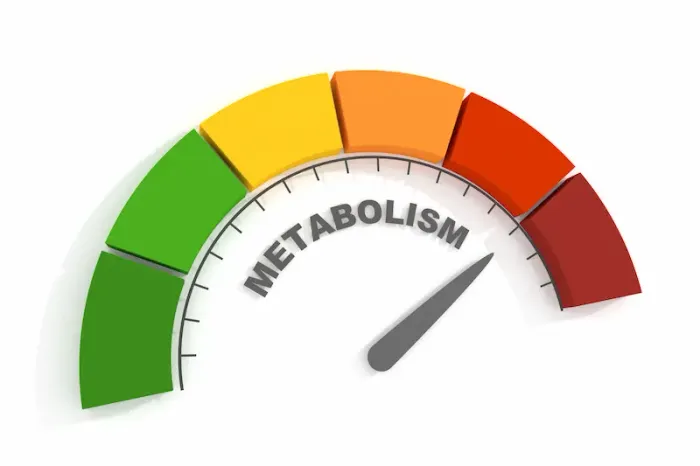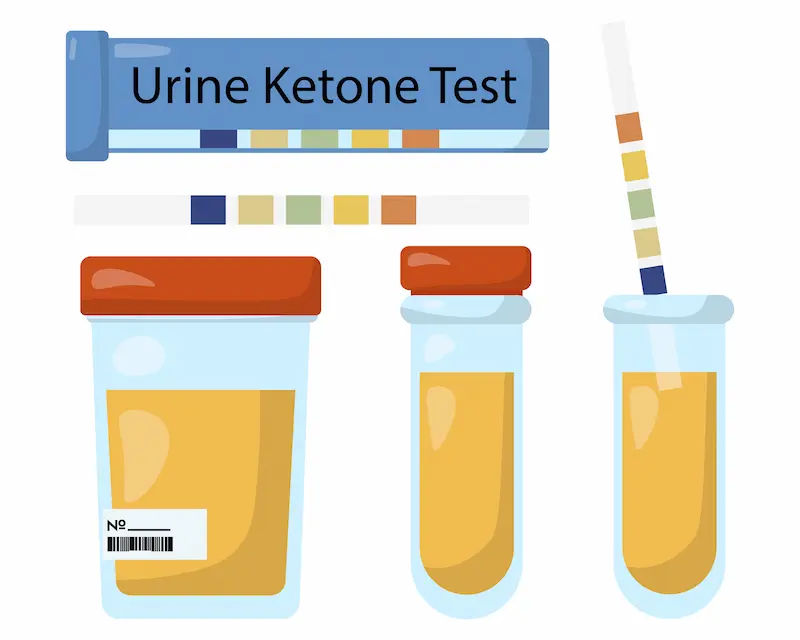How to Slow Down Your Metabolism: A Practical Guide
know about the slowdown of metabolism, why it is necessary, food strategy to slow metabolism, influence of food, lifestyle tips and the role of sleep and stress in slowing metabolism.

Written by Dr. Rohinipriyanka Pondugula
Reviewed by Dr. D Bhanu Prakash MBBS, AFIH, Advanced certificate in critical care medicine, Fellowship in critical care medicine
Last updated on 13th Jan, 2026

Introduction
The conversation around health and wellness is often dominated by tips on how to boost your metabolism for weight loss. But what about the other side of the coin? For a significant number of people, a metabolism that's working in overdrive can be a genuine concern. Whether you're struggling to gain weight, are naturally very thin, or have a condition like hyperthyroidism, understanding how to slow down your metabolism can be a crucial part of achieving better health and body composition. This guide is designed for those who find their bodies burn through calories too rapidly, making it difficult to maintain a healthy weight.
Understanding Your Metabolic Rate
Before we discuss how to slow it down, it's essential to understand what metabolism actually is. Your metabolism encompasses all the chemical processes your body performs to convert food into energy and sustain life. Your Basal Metabolic Rate (BMR) is the number of calories your body needs to perform basic life-sustaining functions like breathing, circulating blood, and cell production while at complete rest.
Consult a Gastroenterologist or Personalised Advice
What Factors Influence Metabolic Speed?
Several key factors determine whether your metabolism is naturally fast or slow:
Genetics: Some people are simply born with a higher BMR.
Age: Metabolism generally slows down with age due to loss of muscle mass.
Sex: Men typically have a higher metabolism than women because they tend to have more muscle mass.
Body Composition: Muscle tissue burns more calories at rest than fat tissue.
Hormonal Factors: Thyroid hormones are primary regulators of metabolic speed.
Why Would Someone Want to Slow Their Metabolism?
The desire to reduce metabolic rate is not common, but it is a valid health goal for specific individuals.
Underweight Struggles: People who are clinically underweight (BMI < 18.5) may need their bodies to conserve energy more efficiently to facilitate healthy weight gain.
Rapid, Unintended Weight Loss: Those experiencing weight loss due to illness, extreme stress, or an overactive thyroid (hyperthyroidism) might need strategies to counteract it.
Endurance Athletes: In some cases, ultra-endurance athletes look to improve metabolic efficiency to conserve energy during long events.
Important Note: Slowing your metabolism with the sole intention of making weight loss harder is not advisable. This guide is for those with a genuine medical or health-related need.
Dietary Strategies to Modulate Metabolism
What you eat, and how you eat it, plays the most significant role in managing your metabolic rate.
1. Increase Caloric Intake Consistently
This is the most direct method. To signal to your body that resources are abundant, you need to be in a consistent caloric surplus. Gaining weight healthily requires consuming more calories than you burn. Use a TDEE (Total Daily Energy Expenditure) calculator and aim for a surplus of 300-500 calories per day to start.
2. Space Out Your Meals
Contrary to the advice for boosting metabolism, eating fewer, larger meals can help slow down digestion and reduce the thermic effect of food (TEF)—the calories burned during digestion. Instead of 6 small meals, try 3 larger ones.
3. Focus on Energy-Dense Foods
Incorporate foods that are high in calories but don't fill you up too quickly. This is key for healthy weight gain.
Healthy Fats: Avocado, nuts, seeds, nut butters, olive oil, and fatty fish like salmon.
Complex Carbohydrates: Dense whole grains like oats, quinoa, and whole-wheat pasta, as well as starchy vegetables like potatoes and sweet potatoes.
Protein Sources: Fatty cuts of meat, full-fat dairy (whole milk, Greek yogurt, cheese), and protein shakes.
4. Limit Caffeine and Stimulants
Stimulants like caffeine can temporarily increase your metabolic rate and suppress appetite. Reducing your intake of coffee, strong tea, and pre-workout supplements can help lower your resting energy expenditure throughout the day.
Lifestyle and Exercise Adjustments
Your daily activity levels are a major component of your total calorie burn.
1. Rethink Your Cardio
High-Intensity Interval Training (HIIT) and excessive steady-state cardio are excellent for burning calories and speeding up metabolism. To achieve the opposite, reduce high-intensity workouts. If you do cardio, focus on low-intensity, shorter-duration activities like gentle walking or swimming, and do it less frequently.
2. Incorporate Strength Training (The Right Way)
While building muscle increases your BMR long-term, the way you train can affect short-term energy expenditure. Focus on heavy compound lifts (e.g., squats, deadlifts) with longer rest periods (3-5 minutes). This style of training burns fewer calories during the workout compared to high-rep, short-rest circuits. The goal is to build mass without creating a massive metabolic spike.
3. Prioritise Rest and Recovery
Overtraining keeps your body in a heightened state of repair, which elevates metabolism. Ensure you get adequate sleep (7-9 hours per night) and incorporate rest days. This helps manage cortisol levels, a stress hormone that can increase metabolism when chronically elevated.
The Role of Sleep and Stress Management
Chronic sleep deprivation and high stress levels can wreak havoc on your hormones, often unpredictably.
How Lack of Sleep Affects Metabolism
Poor sleep can disrupt the hormones leptin and ghrelin, which regulate hunger and satiety. While it can sometimes lead to weight gain, for others, the stress of sleep deprivation can increase metabolic rate and lead to muscle catabolism (breakdown), which is counterproductive for those trying to gain healthy weight.
Techniques to Manage Stress
Chronic stress elevates cortisol. While cortisol can slow metabolism in some contexts, it often promotes the breakdown of muscle tissue for energy, which can ultimately lower your metabolic rate in an unhealthy way. Practices like yoga, meditation, and deep-breathing exercises can help create a more hormonally balanced state, which is the ultimate goal rather than a purely fast or slow metabolism.
When to Seek Professional Help?
It is crucial to emphasise that a persistently fast metabolism accompanied by symptoms like rapid heartbeat, anxiety, sweating, and unintentional weight loss could be a sign of hyperthyroidism or another medical condition.
Consult a doctor or a registered dietitian before making significant changes to your diet or lifestyle, especially if you suspect a health issue. They can run tests (like checking thyroid levels) and provide personalised guidance tailored to your specific health profile.
Conclusion
Learning how to slow down your metabolism is a nuanced process that involves strategic changes to your diet, exercise routine, and lifestyle. It's not about adopting unhealthy habits but about creating a new equilibrium where your body feels secure enough to conserve energy and, for those who need it, build mass. The core principles revolve around consistent caloric intake, mindful food choices, intelligent exercise selection, and masterful stress management.
Consult a Gastroenterologist or Personalised Advice
Consult a Gastroenterologist or Personalised Advice

Dr. Jatin Yegurla
Gastroenterology/gi Medicine Specialist
11 Years • MD (PGI), DM (AIIMS Delhi), FAGIE (AIIMS Delhi), ESEGH (UK), Gold Medalist
Hyderabad
Apollo Hospitals Jubilee Hills, Hyderabad
(675+ Patients)

Dr. Chethan T L
General Physician/ Internal Medicine Specialist
5 Years • MBBS, MD, DNB (General Medicine)
Bengaluru
Apollo Medical Center, Marathahalli, Bengaluru

Dr Piyush Vishwakarma
Gastroenterology/gi Medicine Specialist
11 Years • MBBS, MD, DrNB,
Delhi
Apollo Hospitals Indraprastha, Delhi

Dr. Shivaraj Afzalpurkar
Gastroenterology/gi Medicine Specialist
13 Years • MBBS, MD General medicine (Gold medalist), DrNB (Gastroenterology), MNAMS
Bengaluru
Apollo Clinic, JP nagar, Bengaluru

Dr. Nikhil Patil
Gastroenterology/gi Medicine Specialist
10 Years • MBBS
Bengaluru
Apollo Medical Center, Marathahalli, Bengaluru




